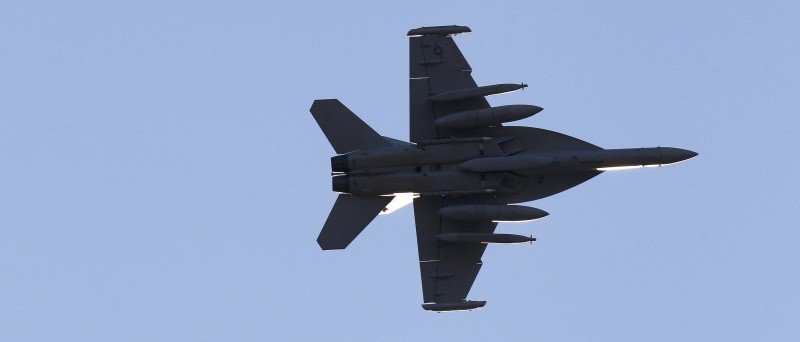by George Landrith • Daily Caller
 National security conservatives and military experts have long warned about steep cuts to the defense budget in recent years. These warnings have been largely waived off even as even as the world continued to grow more dangerous and unstable – from Eastern Europe to the Middle East to the Korean Peninsula and South China Sea.
National security conservatives and military experts have long warned about steep cuts to the defense budget in recent years. These warnings have been largely waived off even as even as the world continued to grow more dangerous and unstable – from Eastern Europe to the Middle East to the Korean Peninsula and South China Sea.
Today, the consequences of shortchanging defense have now become all too real, as our military has been forced into making dangerous trade-offs between size and technological superiority, training and maintenance, compensation and modernization, and much more. For example, the active U.S. Army is shrinking towards becoming its smallest since before World War II. The average age of an Air Force aircraft is 26 years, the oldest ever (aerial refueling tankers are past the half-century mark). And inadequate funding for Navy maintenance, training, and modernization has reduced readiness fleet-wide and contributed to a growing shortfall of strike fighters – in particular the F/A-18 Super Hornets that are the mainstay of carrier aviation wings.
In fact, the predicament facing naval aviation provides a case study of the consequences of shortchanging military procurement in the belief certain capabilities would no longer be needed. In recent years the Navy has not bought the Super Hornets needed to replace aircraft used extensively in the Afghanistan and Iraq campaigns – and still in the fight against ISIS over Iraq and Syria.
As a result of this heavy use carrier strike aircraft are aging fast and going past their original life expectancy. More of the older jets are unavailable for duty because of increased maintenance and from being put offline for expensive service-extending upgrades. Estimates and analyses vary but it is clear that the Navy now needs several dozen new F/A-18 Super Hornets to meet training and operational demands as well as handle unforeseen contingencies.
Indeed, as we know from history, the U.S. military rarely gets to choose when and where it will fight next. For example, the Obama Administration certainly never expected or wanted to go to war in or over Iraq again. But that’s what it was forced to do against ISIS, an operation in which the F/A-18 played a dominant role in the early stages and continues to this day.
Earlier hopes that the Navy version of the F-35 Joint Strike Fighter could help make up the difference have faded as development problems, cost increases, and defense budget constraints continued to delay the F-35s operational deployment. Furthermore, the stealthy F-35 is a complementary but still different, and much more expensive aircraft that cannot replace the Super Hornets in numbers or in capabilities.
This year’s Pentagon budget request – capped by yet another bipartisan agreement in Congress that serves to legitimize insufficient defense spending – did not contain 14 Super Hornets which were later identified as the Navy’s top unfunded priority. These aircraft would help begin remedying a shortfall that will grow larger every year unless new Super Hornets are added. Clever accounting tricks like reducing the number of carrier air wings on paper in order to minimize the perceived shortage of aircraft will only muddle what is a clear and present national security problem.
Solving these and other military readiness challengers will require breaking through the defense impasse that has shortchanged our military for far too long. The Obama Administration and Congressional Democrats have been unwilling to increase defense funding without also increasing domestic spending on their favorite liberal programs. Even some Republicans, who see themselves as budget hawks first and military hawks second, forget that national defense is a core constitutional responsibility – and not some other government program to put in a fiscal straightjacket.
But the duty of Congress today is clear. Provide the funds necessary in this year’s budget request to begin remedying the Navy’s aviation shortfalls along with other overdue investments in new weapons and equipment across the U.S. military.
Because as Leon Trotsky wrote famously, “while you may not be interested in war, war is interested in you.” And it’s our moral and constitutional obligation to make sure that our military is ready when that day comes – again.
George Landrith is the president of Frontiers of Freedom.